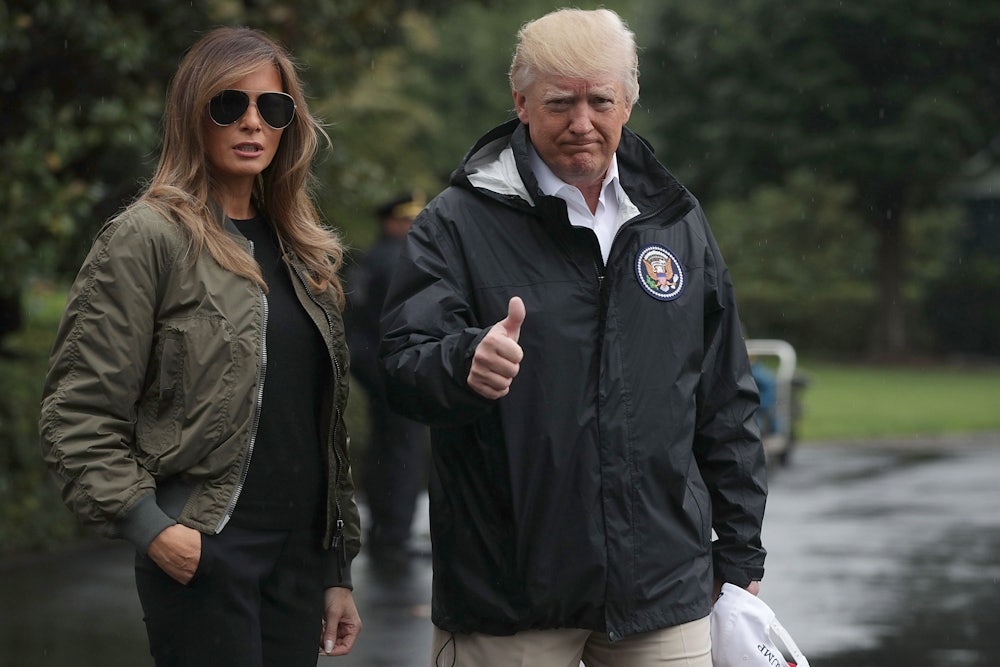The Washington Post has done it: they’ve found the only bad way to politicize Hurricane Harvey, the ongoing catastrophe that has already proved to be one of the most devastating storms in American history.
Analysis: How many votes could Hurricane Harvey cost Trump in Texas? https://t.co/pSJaImDSGY
— Washington Post (@washingtonpost) August 29, 2017
Don’t get me wrong. The article—written by three political science experts—contains interesting, even useful research on how natural disasters can sway American presidential elections. But the timing is just . . . stunningly bad. Right now, Harvey is still an active tropical cyclone, dumping billions of gallons of water on the fourth largest city in America. The death toll is still rising and will not be fully known until floodwaters recede, which could take weeks. People are still trapped in submerged homes; shelters are overcrowding; vulnerable fence-line communities are breathing toxic fumes. Harvey is doing a lot of truly awful things at this very moment. And you want to talk about how it could impact an election in three and a half years?
I am all for politicizing storms in the correct context. Politicization must serve to hold public officials accountable for decisions they’ve made that contributed to deadly results. Did your congressperson ignore warnings that sea-level rise would make storm surges worse? Did your mayor greenlight major development in a floodplain and destroy wetlands that could have absorbed flood waters? Did your president refuse to fund disaster preparation or emergency response agencies? Does your political party deny climate change, and continue to do so even as extreme weather events batter America? If the answer is yes, politicization is not only appropriate, but necessary.
As my former colleague Natasha Geiling wrote in ThinkProgress
this week: “The smart thing to do isn’t to pretend that disasters like Harvey don’t have political underpinnings; the smart thing would be to take a look at the policies that helped make Harvey a costly and deadly disaster, and make better choices in the future.” Hopefully the Post makes better choices too, namely by holding off on 2020 analysis until the floodwaters recede.
